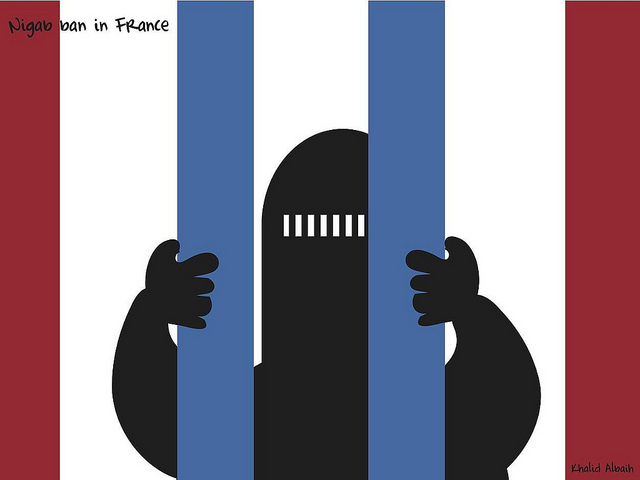Is mainstream French feminism racist?
…
Even before the 2004 law meant scarf-wearing teenagers would be excluded from schools – thus violating their fundamental right to education – France’s established feminist groups did not accept scarf-wearing women in their meetings.
They decided early on these women could not be feminist, indeed must be against everything that feminism stands for, that the hijab was a symbol of oppression. It has taken the few of us who are opposed to this discriminatory law to start discussing whether high heels, lipstick and multiple signals of femininity might just as well be labelled symbols of oppression.
This contempt is ironic: it is assumed these women wear a scarf as they are forced to do so by their menfolk, and that the solution to that undue influence is to expel them from school and send them back to the same oppressive families. If French feminists saw scarf-wearing Muslims as oppressed women, it should be a reason not to expel them from school or to curtail their movements, but to embrace them. Across the country, Muslim women are not seen as “real” French.
In these conditions, wearing an ostensible religious sign has one of many possible meanings, or all of them: it may mean Muslim women expressing solidarity with people of the same racial group; it may mean an attempt to escape that condition by taking refuge in the spirituality that religion offers them; it may be an unspoken way of showing defiance towards the establishment. Scarf-wearing women share patriarchal oppression, with the added handicap of racial discrimination.
White feminists should accept that these women want to develop their own feminism based on their own situation, and that this feminism will take their Islamic culture into account. Instead, my fellow feminists are colluding in widening one of the worst rifts within French society, when time is running out.
Read more.
Photo: Khalid Albaih




